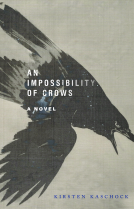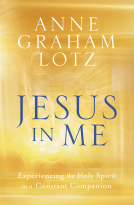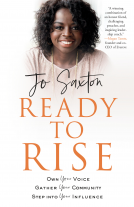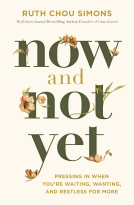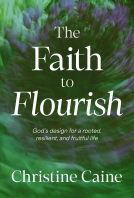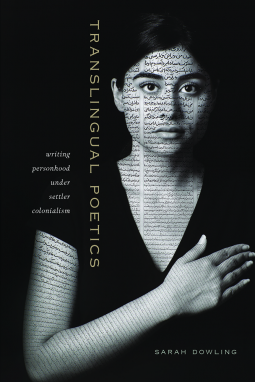
Translingual Poetics
Writing Personhood Under Settler Colonialism
by Sarah Dowling
This title was previously available on NetGalley and is now archived.
Send NetGalley books directly to your Kindle or Kindle app
1
To read on a Kindle or Kindle app, please add kindle@netgalley.com as an approved email address to receive files in your Amazon account. Click here for step-by-step instructions.
2
Also find your Kindle email address within your Amazon account, and enter it here.
Pub Date Dec 03 2018 | Archive Date Dec 03 2018
University of Iowa Press | University Of Iowa Press
Talking about this book? Use #TranslingualPoetics #NetGalley. More hashtag tips!
Description
Since the 1980s, poets in Canada and the U.S. have increasingly turned away from the use of English, bringing multiple languages into dialogue—and into conflict—in their work. This growing but under-studied body of writing differs from previous forms of multilingual poetry. While modernist poets offered multilingual displays of literary refinement, contemporary translingual poetries speak to and are informed by feminist, anti-racist, immigrant rights, and Indigenous sovereignty movements. Although some translingual poems have entered Chicanx, Latinx, Asian American, and Indigenous literary canons, translingual poetry has not yet been studied as a cohesive body of writing.
The first book-length study on the subject, Translingual Poetics argues for an urgent rethinking of Canada and the U.S.’s multiculturalist myths. Dowling demonstrates that rising multilingualism in both countries is understood as new and as an effect of cultural shifts toward multiculturalism and globalization. This view conceals the continent’s original Indigenous multilingualism and the ongoing violence of its dismantling. It also naturalizes English as traditional, proper, and, ironically, native.
Reading a range of poets whose work contests this “settler monolingualism”—Jordan Abel, Layli Long Soldier, Myung Mi Kim, Guillermo Gómez-Peña, M. NourbeSe Philip, Rachel Zolf, Cecilia Vicuña, and others—Dowling argues that translingual poetry documents the flexible forms of racialization innovated by North American settler colonialisms. Combining deft close readings of poetry with innovative analyses of media, film, and government documents, Dowling shows that translingual poetry’s avoidance of authentic, personal speech reveals the differential forms of personhood and non-personhood imposed upon the settler, the native, and the alien.
Advance Praise
“This lively, enlightening, and politically engaged study challenges the English-language nativism that undergirds liberal multiculturalism. The book explores multilingual poetry beginning with women of color feminists’ poems written in the 1980s and ending with twenty-first-century experimental writing as they develop a multilingual poetics of (dis)location.”—Rafael Pérez-Torres, University of California, Los Angeles
“A sharply written study of an under-examined issue in American literature, and one that deserves the careful attention that this study offers. The book is full of excellent readings that often lead into provocative engagements with the crucial social and political issues of our time.” —Joseph Jonghyun Jeon, University of California, Irvine
“Sarah Dowling has made a vital intervention in American letters with Translingual Poetics. Dowling articulates the myriad ways the settler colonial state legitimates its continual violence. Simultaneously, she guides the reader toward horizons of trenchant poetic resistance, contestation, and subversion. This work opens a space for presence in the face of erasure, memory in place of forgetting, and voice that cuts through silence.”—José Orduña, author, The Weight of Shadows: A Memoir of Immigration and Displacement
Available Editions
| EDITION | Other Format |
| ISBN | 9781609386061 |
| PRICE | $80.00 (USD) |
| PAGES | 240 |
Links
Average rating from 6 members
Featured Reviews
 Meike S, Media/Journalist
Meike S, Media/Journalist
"This way and ainsi our ancestors formed ce qu'on appelle die Sprache."
- Anne Tardos, "Cat Licked the Garlic"
In this study, Sarah Dowling examines the power of language when it comes to defining personhood: The settlers in North America have imposed their colonial languages on indigenous people, whose native tongues are not recognized as official languages in the U.S. and Canada - with all kinds of consequences. Speaking and understanding a language is instructive when it comes to participation and cultural representation, and speaking or hearing another or a foreign language (in the case of immigrants) evokes reactions and provokes associations. It's these themes that are central to translingual poetics, meaning poetry that defies the monolingual/multilingual binary and recognizes the whole range of competencies across and within languages, thus negotiating social constraints.
Dowling analyses many poems and by that conveys the potential of translingual poetics, for instance by discussing texts by Layli Long Soldier, Myung Mi Kim, and Guillermo Gómez-Peña. In this context, she also highlights the historical, political and social circumstances to which the poets react in manifold ways. In consequence, this means that Dowling questions how the settler, the native, and the immigrant are defined as people through language, how participaton, personhood and language are connected.
The only question that left me wondering is that there is a necessity for a common language in order to keep democracy running - how do you do justice to native and other languages under settler colonialism? It's not Dowling's task to answer that question, but it seems important to discuss it.
On another note, the cover proves that scientific books can be smart AND look nice - we need more of that. A very worthwhile read.
 Willy M, Reviewer
Willy M, Reviewer
A very in depth and enlightening discussion regarding poetry that breaks the monolinguist idea of North American culture. This is a very enjoyable but complex analysis that anyone who loves theory or the multicultural culture of North America will definitely want to read.


